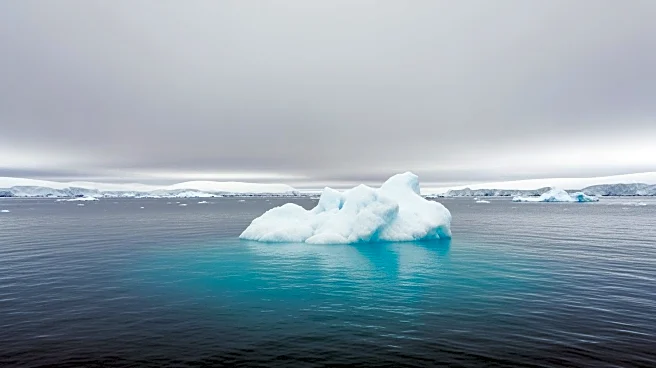What's Happening?
The 44th annual meeting of the Commission for the Conservation of Antarctic Marine Living Resources (CCAMLR) concluded without reaching consensus on krill fishing regulations. Despite two weeks of negotiations, members failed to agree on measures to protect
the Southern Ocean, a critical habitat for marine life. Conservation-oriented countries, including Chile, Argentina, and the European Union, resisted attempts to expand krill fishing in predator-rich areas without safeguards for penguins, seals, and whales. The meeting focused on the proposed marine protected area (MPA) for the Antarctic Peninsula and the management of the krill fishery, which overlaps with these waters. The lack of agreement marks a turning point, as conservation-minded members aim to align CCAMLR's efforts with global ocean protection commitments.
Why It's Important?
The failure to reach consensus on krill fishing regulations has significant implications for Antarctic conservation efforts. Krill is a vital food source for many marine species, and its sustainable management is crucial for maintaining ecosystem balance. The inability to adopt protective measures could threaten the biodiversity of the Southern Ocean and undermine global conservation goals, such as the High Seas Treaty and the target to protect 30% of the ocean by 2030. The meeting's outcome highlights the challenges of balancing industrial fishing interests with environmental protection, and the need for stronger international cooperation to safeguard fragile ecosystems.
What's Next?
Following the meeting, conservation groups like WWF have called for a moratorium on Antarctic krill fishing to protect marine life. The proposed Antarctic Peninsula MPA, supported by scientific studies, remains pending adoption, and its approval could significantly enhance protection efforts. CCAMLR members are expected to continue discussions on marine conservation strategies, including the designation of new Vulnerable Marine Ecosystems. The growing alignment among conservation-oriented members may lead to renewed efforts to implement robust management practices and expand protected areas in the Southern Ocean.
Beyond the Headlines
The CCAMLR meeting underscores the complex interplay between environmental conservation and economic interests in the Antarctic region. The resistance to expanding krill fishing reflects broader concerns about the impact of climate change on marine ecosystems and the need for precautionary management. The meeting also highlights the importance of scientific evidence in guiding policy decisions and the role of international agreements in promoting sustainable practices. As climate change continues to affect the Antarctic environment, CCAMLR's actions will be critical in ensuring the resilience of marine ecosystems and protecting biodiversity.















